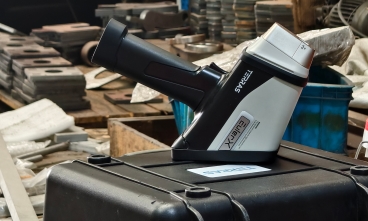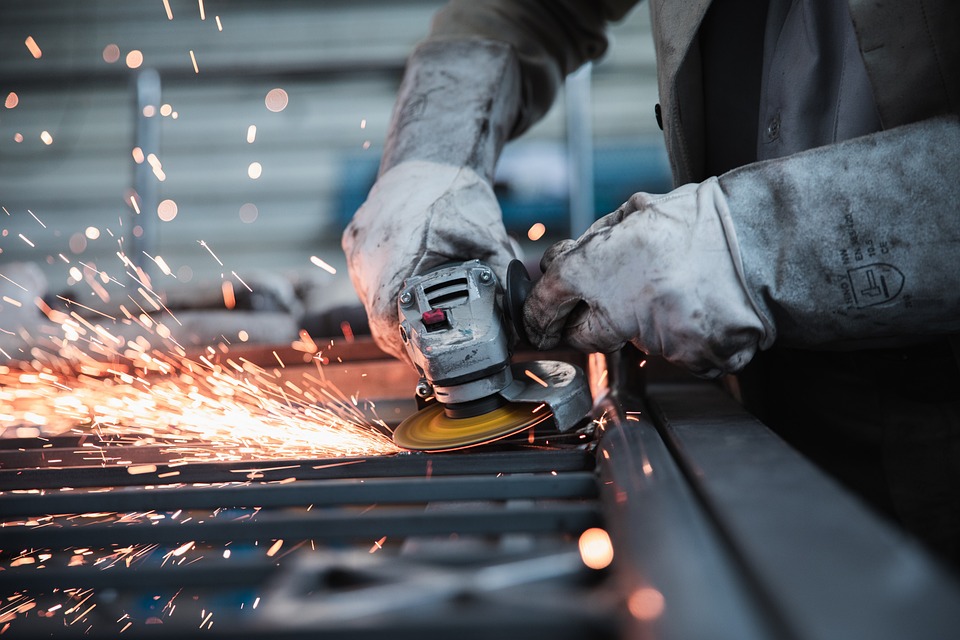
Metal Material
A high-tech enterprise focusing on the development and application of X-ray technology products, committed to becoming a leading supplier of X-ray industrial testing solutions.
How XRF Lab Equipment Ensures Quality Control in Metal Manufacturing
In the fast-paced world of metal manufacturing, quality control is essential for ensuring the production of high-grade products that meet industry standards. One of the most reliable and efficient ways to ensure this level of quality is through the use of X-ray Fluorescence (XRF) technology in laboratory settings. XRF lab equipment plays a pivotal role in analyzing the elemental composition of metals, enabling manufacturers to maintain product consistency, reduce defects, and optimize production processes. Let’s explore how XRF equipment ensures quality control in metal manufacturing.
What is XRF Technology?
XRF is a non-destructive analytical technique that measures the elemental composition of materials. By emitting high-energy X-rays onto a sample, the equipment excites the atoms in the material. As these atoms return to their ground state, they emit secondary X-rays, which are characteristic of specific elements present in the material. This data is then used to determine the metal’s precise composition, including the concentration of various alloys and impurities.

The Role of XRF in Metal Manufacturing
XRF technology serves as a powerful tool in metal manufacturing, performing critical quality control tasks at various stages of production:
1. Material Verification
One of the most fundamental roles of XRF equipment is to verify the composition of incoming raw materials. Metal manufacturers often work with a variety of alloys and scrap materials, each requiring specific characteristics to ensure high product quality. XRF lab equipment provides immediate, on-site results, allowing manufacturers to verify that materials meet the required specifications before they enter the production process. This helps prevent expensive material defects that can result from using subpar or incompatible materials.
2. In-Process Quality Control
Throughout the production process, maintaining consistent alloy composition is crucial for ensuring that the final product meets industry standards and performance criteria. XRF equipment is used to perform in-process checks, helping to ensure that any deviations from the desired metal composition are detected early. If an issue arises, operators can take corrective actions promptly, preventing costly errors and defects in the final product.
3. End Product Testing
After manufacturing is complete, XRF equipment can be used for final product testing to confirm that the metal's composition aligns with customer specifications and regulatory standards. Whether it’s testing the purity of steel, confirming the correct alloy content in aluminum, or ensuring the proper coating thickness on metal parts, XRF lab equipment provides reliable and accurate results. This quality assurance step helps manufacturers meet customer expectations and industry regulations.
4. Compliance with Industry Standards
In many industries, metals must meet strict regulations regarding their chemical composition, mechanical properties, and environmental impact. XRF technology ensures that manufacturers stay compliant with industry standards, such as ASTM, ISO, and REACH, by providing fast, accurate, and repeatable analysis. By ensuring compliance at every stage of production, manufacturers avoid costly fines, recalls, and reputational damage.
5. Cost Efficiency
By integrating XRF analysis into the manufacturing process, companies can achieve significant cost savings. XRF's non-destructive nature means that manufacturers can test materials and products without damaging them, eliminating the need for additional testing or rework. Additionally, XRF helps optimize the use of raw materials, as it provides real-time feedback on material composition, preventing wastage of expensive alloys and improving overall yield.
Advantages of Using XRF Lab Equipment
XRF equipment offers several advantages that make it indispensable in metal manufacturing quality control:
Non-Destructive Testing: XRF technology allows for the analysis of metal samples without causing any damage. This makes it ideal for testing high-value materials or finished products.
Fast Results: XRF equipment provides immediate results, which is crucial for maintaining a streamlined production process and minimizing delays.
Accuracy and Precision: The advanced technology used in XRF ensures that manufacturers receive highly accurate and precise elemental analysis, making it a trusted method for quality control.
Ease of Use: Modern XRF instruments are user-friendly and require minimal training to operate, enabling operators to quickly obtain results without the need for specialized skills.
Versatility: XRF can be used to test a wide range of metals, including alloys, steels, precious metals, and non-metallic coatings, making it a versatile tool for different manufacturing processes.

Terras EulerX900 Handheld Alloy Analyzer
For decades, XRF spectrometry has been a proven and versatile method for metal analysis, prized for its portability and ease of operation in quality control applications. The EulerX 900 series handheld analyzers are extensively employed in alloy grading, scrap metal recycling, precious metal verification, and PMI, capable of analyzing solids, liquids, and powders with high efficiency.
Conclusion
In the metal manufacturing industry, where precision and consistency are critical, XRF lab equipment is a game-changer. From material verification to end product testing, XRF ensures that metal products meet the highest standards of quality and performance. By integrating XRF technology into quality control practices, manufacturers can reduce defects, optimize production efficiency, and comply with industry regulations—all while ensuring the final product meets customer expectations. With its accuracy, speed, and non-destructive capabilities, XRF is an essential tool in maintaining the integrity and quality of metal products in today’s competitive manufacturing environment.
Join Us
Subscribe to our email list for updates & promotions.



